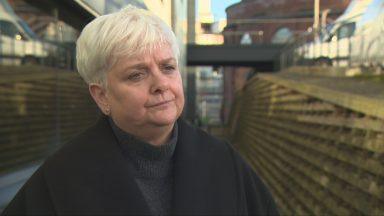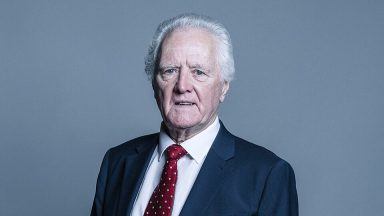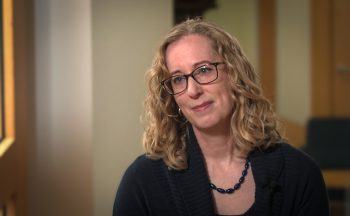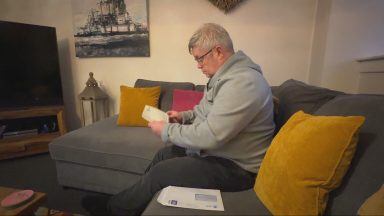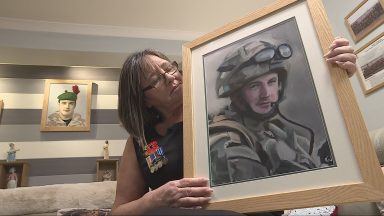It’s a debate that’s gathered pace across the UK over the past year; should terminally ill adults have a choice over whether to end their own lives, with the help of doctors?
MPs have already supported a proposal to introduce a change in the law in England and Wales. And next week, MSPs will have their say.
The Assisted Dying for Terminally Ill Adults Scotland Bill, introduced by Liberal Democrat MSP Liam McArthur, aims to give terminally ill patients the right to choose a medically assisted death.
Voices from both sides of the debate are making their case as Scotland inches closer to a historic decision.
‘It’s about taking away people’s pain’
Highland mum Rona Tynan was diagnosed with multiple sclerosis over 20 years ago.
Her condition has gradually progressed, limiting her mobility – but not her mindset.
“I have gone from being very fit to a walking stick to crutches to a mobility scooter. Now I’m permanently in a wheelchair.
“But my brain and my life have not changed. I’m still very happy and living a good life. I am married, have children, absolutely love my friends, and we still go on holidays.
“Without such a great husband and children and family, and friends, my life probably would be a lot different. Support is an extremely important thing.”
Despite her contentment, Rona’s views on assisted dying have evolved significantly over the years.
In 2017, she persuaded a man who also had MS, who was arranging to go to Dignitas in Switzerland to end his life, to reconsider after seeing his story on STV News.
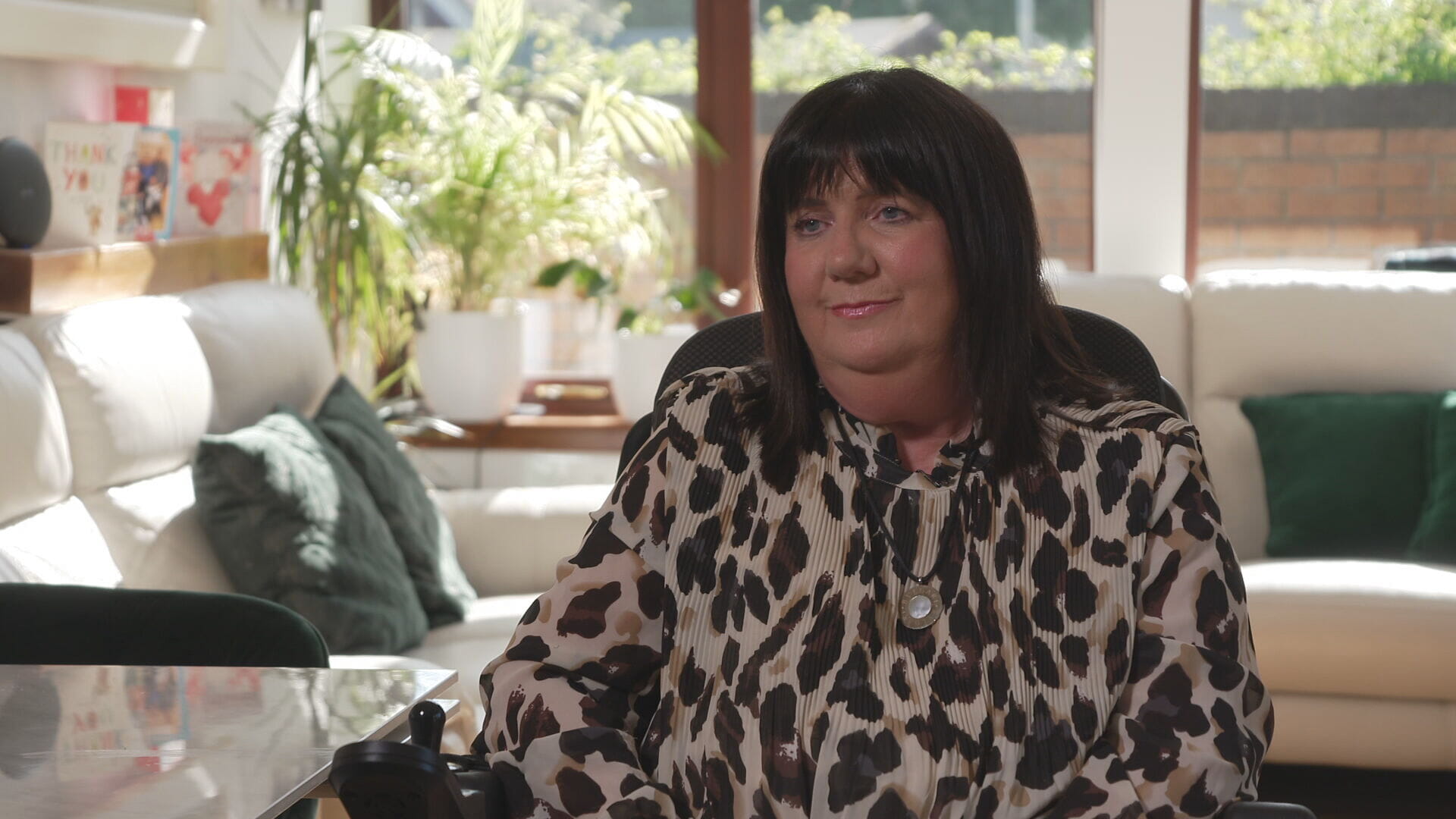 STV News
STV News“I was quite concerned that he was going there. I was really wanting to know if I could help him, just talk to him about what I do to make me feel better, and make sure he was getting the same support I was getting.
“My view was that I really did not want assisted dying. I just felt where there’s life, there’s hope.”
However, since that intervention, Rona’s stance has shifted.
“That person talking was already very naive. That was somebody who had never dealt with watching someone painfully die,” she said.
“It’s not even about dignity. It’s about taking away people’s pain. It scares me so much thinking of someone, and I know what happens, not being able to breathe properly, choking, and just being in absolute agony. It’s just a horrible thought.
“The one last thing you want to do is respect people’s wills when they die. So why do you not respect their wishes when they’re alive?”
Rona believes that the option of assisted dying would provide peace of mind, giving people the choice to avoid a prolonged and painful end.
“I’ve had a lot of time to think about my own condition. I try not to look at the negative things, but after 20 years, you can’t avoid hearing or reading things.
“I do know that my life could turn out very badly in the end. It certainly made me realise that I wanted to have that choice.
“When you’re diagnosed with an illness and you don’t have long left to live and you know there is a horrible death in front of you. I just think that would make people feel so much better.
“I just think it opens up choices. And choices here are extremely important.”
‘The focus should be on providing palliative care’
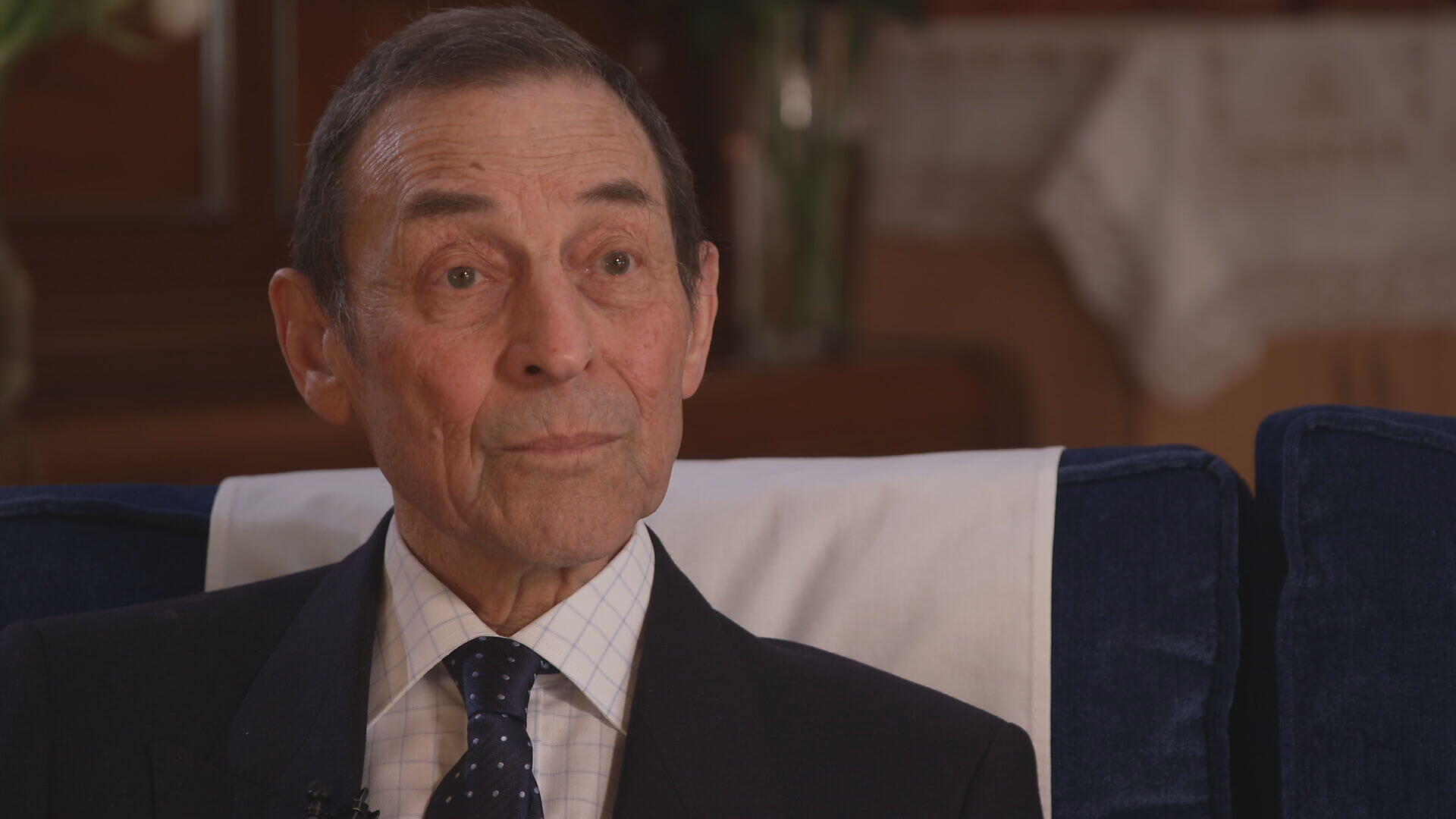 STV News
STV NewsFor others like Professor Alexander Broadie, who once faced a terminal diagnosis for a rare form of blood cancer, the focus should be on improving palliative care, not introducing assisted dying.
In 2020, he was admitted to St Margaret’s hospice after reaching the end of his treatment options.
Four years later, he was well enough to return home to live with his wife.
“I would never wish my worst enemy to be going through what I was then going through, and have thought about it in those terms ever since.
He said: “I was almost completely useless. I just lay there and I believed what I’d heard. At that time, my life was being measured in days or in months.
“In fact, I knew that I was at the end of my stay on this planet by the way the doctors were in the hospital, talking about me as if I couldn’t hear them.
“To think that when a whole team, including two or three consultants, thought that there was nothing more they could do for me, well, this would be a correct judgement and I find it extraordinarily interesting what happened next.”
Yet, over time, something unexpected happened: his condition improved.
“I knew I was supposed to feel a little bit worse, but I was feeling a little bit better. I believe the reason for this, the causal thing that was making all the difference, was this feeling of love and compassion that I sensed coursing through the hospice. They were all contributing to this.
“Someone would always talk to me or sit with me in the room, holding my hand. I felt there was something special going on in here.
“In the hospital, it wasn’t that nobody was interested in me as a person. It’s just that everybody seemed to be swept off their feet by things – they were too busy.”
Alexander believes that assisted dying takes attention away from ensuring that every person has access to high-quality care and support at the end of life.
“There needs to be a significant shift in government thinking in terms of the distribution of scarce financial resources. More attention should be given to what can be provided in palliative care – it’s such a big job to service this requirement well that it should be handled by the government.
“If we focus too much on assisted dying, we might miss the larger question of how we provide palliative care across the country. We need to make sure people are living well right to the end of their lives, not just focusing on dying.
“I look back now and I think, if I hadn’t come here, if I had been left in the hospital and in effect left to die, I wouldn’t have experienced any of this, and what I’m now going through is just so wonderful.
“I’m full of life and so pleased, so pleased I’ve made it to this period. And what a loss it could be to the whole story that could be told about me if this bit were missing.”
‘This is different from voting on the principle of choice’
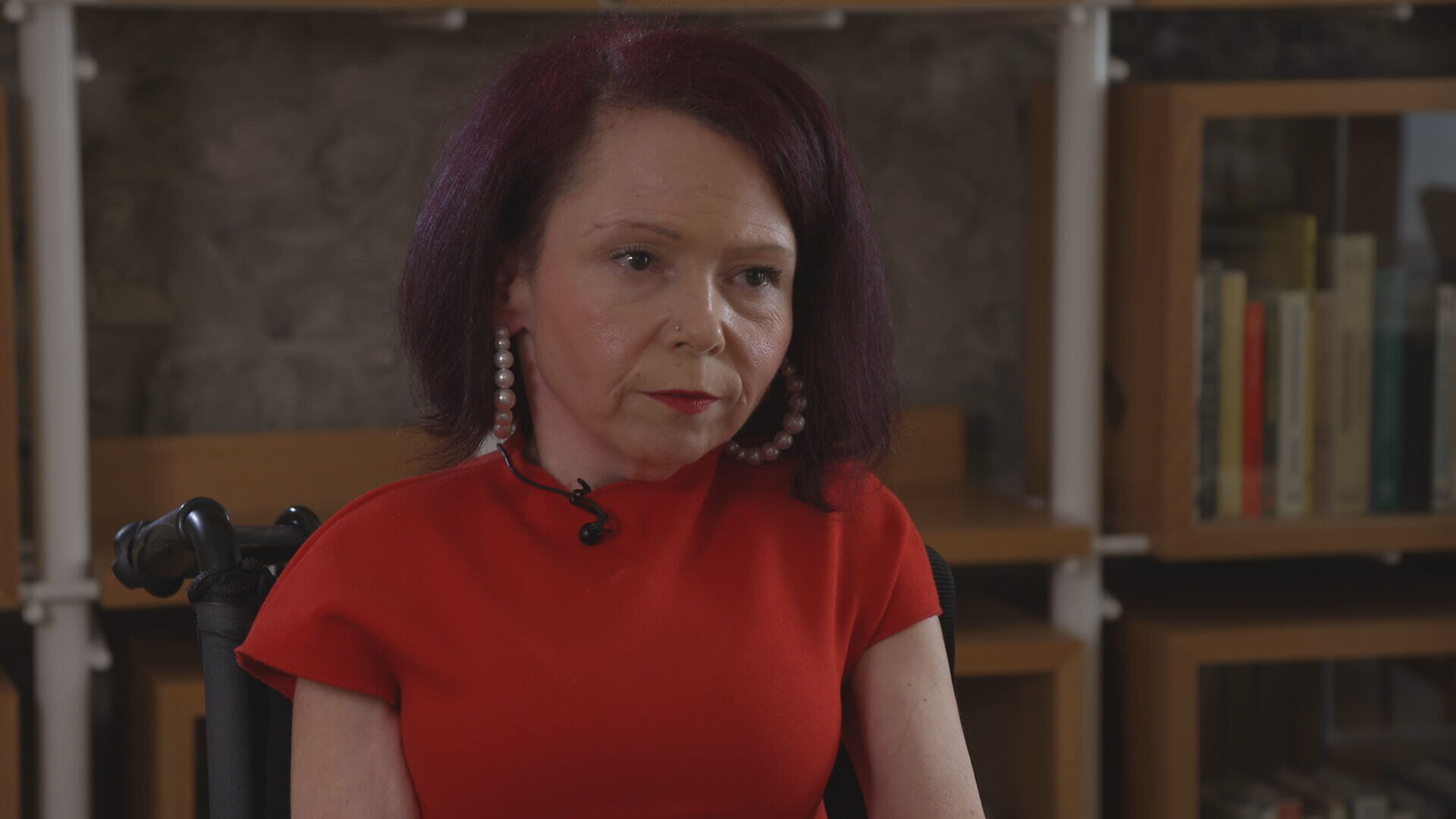 STV News
STV News‘It should be easier to access to support to live than to die’
Labour MSP Pam Duncan Glancy, is a long-time critic of assisted dying.
As the first permanent wheelchair user in the Scottish Parliament, she has championed the rights of disabled people since her election in 2021. She believes the law could have unintended consequences for the most vulnerable.
“I fundamentally believe that in any society, it should be easier to access support to live than it should be to access support to die,” she said.
“People kind of inherently think choice is a good thing, right? And of course it is, but actually, this is not about voting on the principle of choice. This is very, very different.
“Once you start to look at the detail on what we could be legislating for and what the implications could be for disabled people, who may feel that they’re a burden on their family or their friends, the questions are pretty stark. People usually begin to question it once they look at the details.”
Like Alexander, Glancy believes prioritising access to the best end-of-life care for the terminally ill is essential.
“I’ve come to the conclusion that it’s about having choice and autonomy over what support you have around you. At the point at which you’re going to die, and that’s about good palliative care.
“It’s about support for your family and friends to ensure that you’re comfortable, that you’re content, that you’ve got everything that you need, and it’s about the health profession being available to you to make sure that you’re comfortable now.”
Glancy worries that perceptions of disability could lead people to feel pressured into prematurely ending their own lives.
“There is a vanishingly small number of things I can do for myself, and other people have to do almost everything for me, including help me to toilet, help me to get showered, get me undressed, dressed, go to bed, etcetera.
“I understand that people are frightened of loss of function because of the way society views the indignity of having to rely on care, and I don’t consider that an indignity thing. But people do think it’s quite undignified to have to rely on someone else.
“Until we change that sort of perception, it’s very difficult for me to see a circumstance where we’re not indirectly coercing somebody to conclude that they didn’t want to be at that point in their life, where they are relying on other people because of that perception.”
‘The time is right for a change in the law’
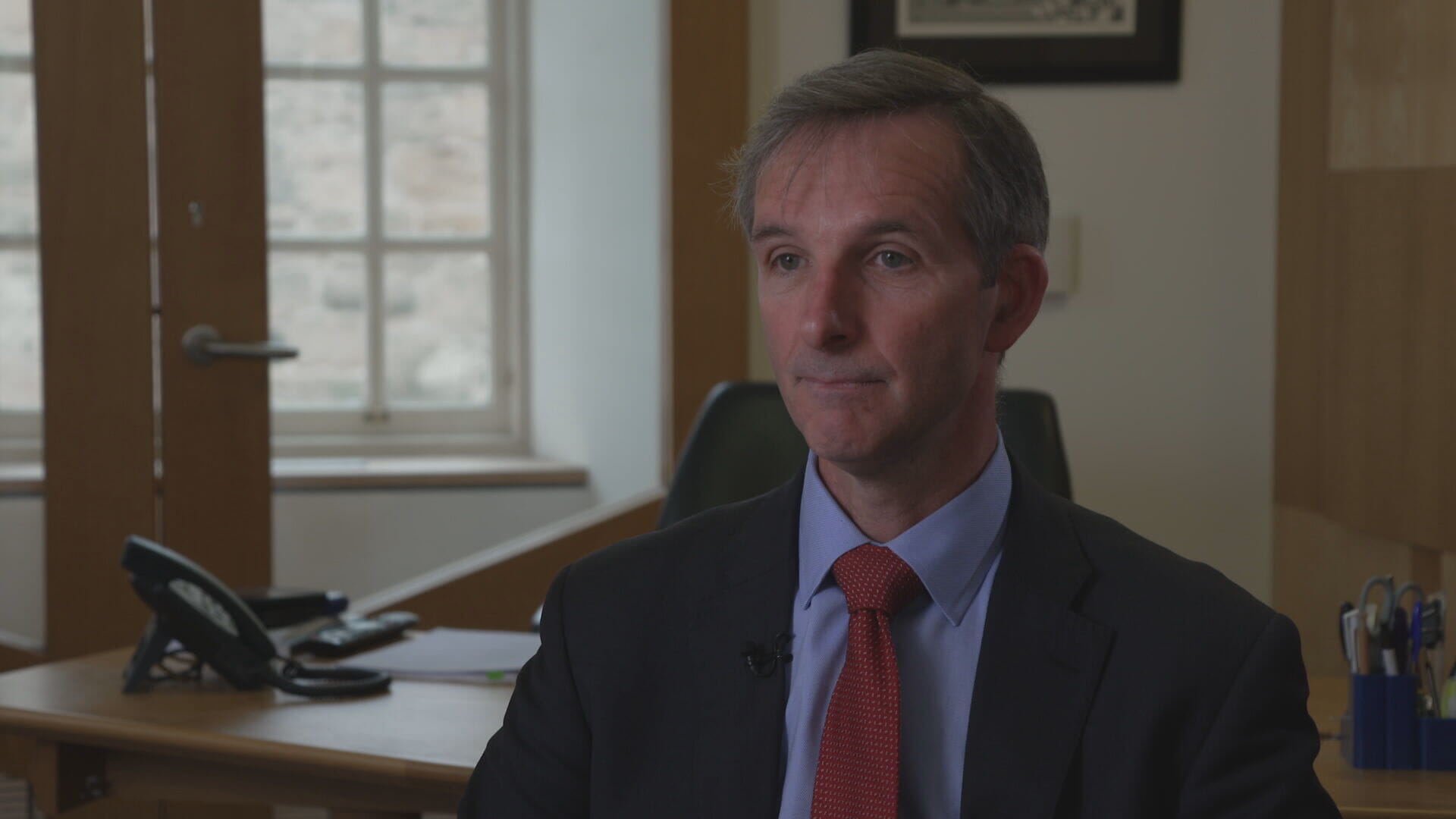 STV News
STV NewsNext week, MSPs will cast their vote on the Assisted Dying for Terminally Ill Adults Scotland Bill, marking a pivotal moment in the emotional and long-standing debate.
It’s not the first time the Scottish Parliament has faced this issue. In 2010 and 2013, Margo MacDonald launched similar proposals, both of which failed to clear the first hurdle.
But this time, an Assisted Dying Bill for England and Wales, brought by MP Kim Leadbeater, has already passed its first major vote at Westminster.
McArthur said: “I was very keen to give Parliament an opportunity to reconsider this issue, not least given the fact that around two-thirds of the MSPs who were elected to parliament weren’t here in 2015.
“They haven’t had a chance to debate or vote on it, so I think the time is right.”
McArthur believes there is fresh momentum behind the debate.
A poll of 4,000 people carried out by Opinium Research on behalf of Dignity in Dying Scotland found 78% said they would support a change in the law to allow dying adults to access assisted dying.
He points to Jersey and the Isle of Man, where plans to allow assisted dying have already been approved, along with the Bill progressing in Westminster.
“The time is right for a change in the law. Now the status quo is unsustainable.
“I don’t underestimate the significance of this, but it’s not an issue that’s going to go away.
“We can’t park this, I think, for another day. We do need to grapple with the detail of it, and I’m confident that’s what will happen.”
McArthur believes the introduction of additional safeguards since Holyrood last voted will protect patients’ autonomy and ensure their wishes are respected.
These include a diagnosis made by two separate medics, who must ensure the patient is mentally fit and informed of all options available to them, and a 14-day period of reflection before medication is provided.
“A lot of the safeguards, as I say, that we see working very effectively in all these other jurisdictions. So I believe we’re not breaking new ground here and we’re learning from what has worked well in practice in other parts of the world.”
He added: “Not changing the law has consequences, and I think that’s the message that comes through loud and clear from dying Scots and from those who have lost a friend or a family member to a bad death.”
Follow STV News on WhatsApp
Scan the QR code on your mobile device for all the latest news from around the country


 iStock
iStock





